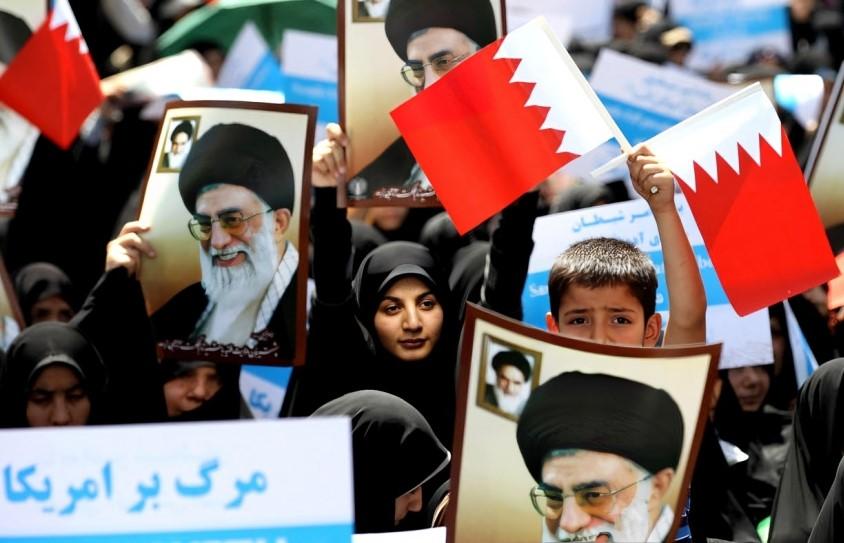Iran’s long arm in Bahrain Another bite of the Gulf?
On March 12, the US State Department and the Department of Treasury, in coordination with Bahrain, sanctioned several individuals, mostly Bahrain citizens, who are engaged in financial support of the pro-Iranian militant group Al-Ashtar Brigades.
Given Washington’s close security cooperation with Manama, this US announcement might suggest that Iranian-Bahraini relations are about to take a nose-dive. But in reality, that is unlikely to happen — at least not while the Iranian-Saudi détente continues, which remains the case for now.
The Department of State designated Al-Ashtar Brigades as a Foreign Terrorist Organization and a Specially Designated Global Terrorist in 2018. In 2018, the government of Bahrain charged numerous individuals due to terrorism-related activities. A number of these individuals fled Bahrain to evade prison sentences and settled in Iran, which has long supported and continues to serve as a safe haven for terrorist groups.
The US has been taking action against Iran-backed groups in the Middle East to reduce Tehran's influence in the region and to isolate its affiliates. Unlike other Gulf states, Bahrain seems to be more vulnerable to the Shia Axis influence stemming from Iran that threatens the kingdom’s national security. Given the sizeable Shia minority living in the kingdom, many pro-Iranian groups and sympathizers sought Tehran’s patronage.

Therefore, the official Manama established a deep strategic partnership with Saudi Arabia, the Gulf's leading actor, to quell the Iranian influence and its proxy forces, namely Al Ashtar Brigades. As such, Tehran apprehends that Bahrain's foreign policy agenda is much dependent on Saudi Arabia and partly on the US, so it abstains from open confrontation or bellicose rhetoric against the kingdom. Moreover, the Iran-Saudi détente under China's close watch since 2023 is also a crucial factor behind Tehran's unwillingness to go large in the Gulf at this critical time.
However, many wonder why the Biden administration decided to exert pressure on Al-Ashtar brigades now without providing any new evidence that the local militant group is engaged in the perpetration of an alleged attack against the Bahrain kingdom. The likeliest explanation for such a decision is the Biden administration's preventive measure against the pro-Iranian Arab group amid the ongoing Israel–Hamas war in Gaza.
Since the outbreak of war in Gaza, regional tensions have heightened dramatically with the active involvement of the pro-Iranian proxy groups, including the attack on the US military personnel in Iraq in early 2024.
The war between Hamas and Israel enabled Iran to boost support to its various Shia militant groups in Yemen, Lebanon, Iraq, and Syria in an attempt to open additional fronts against the US-backed Israel, though at the cost of many lives of its military personnel.
For example, on April 1, Israeli forces attacked the Iranian embassy in Damascus. They reportedly killed Brig-Gen Mohammad Reza Zahedi, a senior commander of the elite Quds Force, and Brig-Gen Mohammad Hadi Haji-Rahimi, his deputy. Both officers were the highest-ranking military officials killed in one day after General Qassem Soleimani’s assassination in Iraq in 2020.

The Israelis appear to be testing the resolve of the Iranians and their allies and signalling that they are serious about increasing pressure on their enemies. The Israelis are looking at the fact that both Iran and Hezbollah have not been pushing as hard as some might expect. Now, they will see if Iran and Hezbollah are going to push back.
In other words, the US authorities decided to exert pressure on the Al-Ashtar brigades before they would perpetrate or open another front against Israel in the Middle East region. Nevertheless, it is unlikely that at the current stage, Al-Ashtar Islamists possess plans of military operation against the US or its allies in the Gulf region.
Notably, Bahrain is home to military bases of both the United States — specifically, the US Navy’s 5th fleet — and of the United Kingdom. It is, thus, no coincidence that London designated al-Ashtar a terrorist group back in 2017, and on March 12, 2024, sanctions on al-Ashtar were, in fact, coordinated between London and Washington.
Such measures aim to protect Bahrain from potentially sinking into sectarian violence like other Middle Eastern states. However, Bahrain also takes an accurate approach toward Iran to avoid diplomatic confrontation and trigger pro-Iranian proxy forces against itself.








